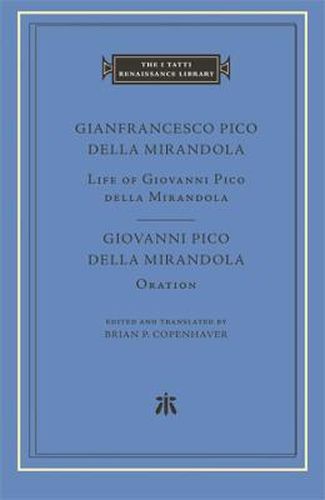Readings Newsletter
Become a Readings Member to make your shopping experience even easier.
Sign in or sign up for free!
You’re not far away from qualifying for FREE standard shipping within Australia
You’ve qualified for FREE standard shipping within Australia
The cart is loading…






The Oration by philosopher Giovanni Pico della Mirandola (1463-1494), to which later editors added the subtitle On the Dignity of Man, is the most famous text written in Italy at the height of the Renaissance. The Life of Giovanni by Gianfrancesco Pico, his nephew, is the only contemporary account of the philosopher’s brief and astonishing career-Giovanni, who challenged anyone to debate him on nine hundred theses in Rome, whose writings made him a heretic by papal declaration, died at the age of thirty-one. Together, these works record Giovanni’s invention of Christian Kabbalah, his search for the ancient theology of Orpheus and Zoroaster, and his effort to reconcile all the warring schools of philosophy in universal concord. In this new translation, the two texts are presented with ample explanatory notes that transform our understanding of these fascinating thinkers.
$9.00 standard shipping within Australia
FREE standard shipping within Australia for orders over $100.00
Express & International shipping calculated at checkout
The Oration by philosopher Giovanni Pico della Mirandola (1463-1494), to which later editors added the subtitle On the Dignity of Man, is the most famous text written in Italy at the height of the Renaissance. The Life of Giovanni by Gianfrancesco Pico, his nephew, is the only contemporary account of the philosopher’s brief and astonishing career-Giovanni, who challenged anyone to debate him on nine hundred theses in Rome, whose writings made him a heretic by papal declaration, died at the age of thirty-one. Together, these works record Giovanni’s invention of Christian Kabbalah, his search for the ancient theology of Orpheus and Zoroaster, and his effort to reconcile all the warring schools of philosophy in universal concord. In this new translation, the two texts are presented with ample explanatory notes that transform our understanding of these fascinating thinkers.